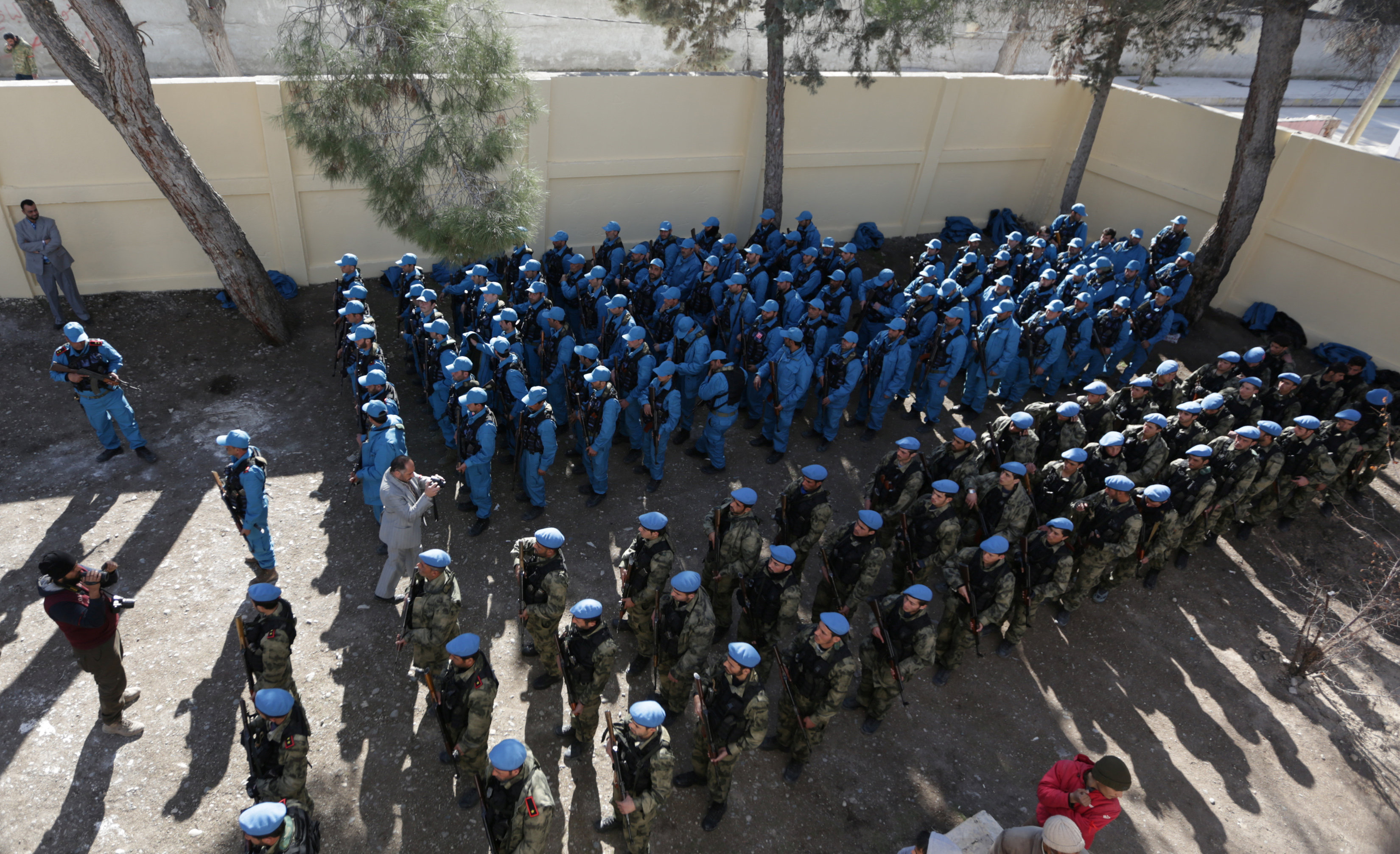
By Julia Edwards Ainsley and Matt Spetalnick
WASHINGTON (Reuters) – U.S. President Donald Trump said on Wednesday he “will absolutely do safe zones in Syria” for refugees fleeing violence in the war-torn country.
Saying Europe had made a tremendous mistake by admitting millions of refugees from Syria and other Middle Eastern trouble spots, Trump told ABC News in an interview: “I don’t want that to happen here.”
“I’ll absolutely do safe zones in Syria for the people,” he added, without giving details.
According to a document seen by Reuters on Wednesday, Trump is expected to order the Pentagon and the State Department in coming days to craft a plan for setting up the “safe zones,” a move that could risk escalation of U.S. military involvement in Syria’s civil war.
The draft executive order awaiting Trump’s signature signaled the new administration was preparing a step that Trump’s predecessor, Barack Obama, long resisted, fearing the potential for being pulled deeper into the bloody conflict and the threat of clashes between U.S. and Russian warplanes over Syria.
“The Secretary of State, in conjunction with the Secretary of Defense, is directed within 90 days of the date of this order to produce a plan to provide safe areas in Syria and in the surrounding region in which Syrian nationals displaced from their homeland can await firm settlement, such as repatriation or potential third-country resettlement,” the draft order said.
Creation of safe zones could ratchet up U.S. military involvement in Syria and mark a major departure from Obama’s more cautious approach. Increased U.S. or allied air power would be required if Trump chooses to enforce “no fly” restrictions, and ground forces might also be needed to protect civilians in those areas.
Still, the document gave no details on what would constitute a safe zone, exactly where they might be set up and who would defend them. Jordan, Turkey and other neighboring countries already host millions of Syrian refugees. The Turkish government had long pressed Obama, without success, for creation of a no-fly zone in Syria on its border with Turkey.
The draft raised the possibility of establishing those safe havens in neighboring countries but did not elaborate.
Trump’s call for a plan for safe zones is part of a larger directive expected to be signed in coming days that includes a temporary ban on most refugees to the United States and a suspension of visas for citizens of Syria and six other Middle Eastern and African countries deemed to pose a terrorism threat.
It represents a modified version of the blanket ban on Muslims entering the United States that Trump initially advocated on the campaign trail last year, sparking criticism from human rights groups and across the U.S. political spectrum.
REPUBLICANS HAVE CALLED FOR SAFE ZONES
U.S. military officials had long warned that the creation of no-fly zones inside Syria would require a large number of additional resources beyond the fight against Islamic State and it would be difficult to ensure that jihadist insurgents did not infiltrate those areas amid the chaos of Syria’s civil war.
Some Republican lawmakers have advocated the creation of such zones, especially to protect civilians fleeing the conflict against attacks by forces loyal to Syrian President Bashar al-Assad.
During and after the presidential campaign, Trump called for no-fly zones to harbor Syrian refugees as an alternative to allowing them into the United States. Trump accused the Obama administration of failing to properly screen Syrian immigrants entering the United States to ensure they had no militant ties.
Obama’s aides have insisted the vetting was meticulous and none of the Syrian refugees allowed in have been implicated in any attacks.
On the campaign trail, Trump gave no details as to how he might go about creating such havens, except to say that he would ask Gulf states to help pay.
“All the questions of setting up a safe zone are still there,” a U.S. official said. “If you’re going to declare a safe zone, there’s a lot of other things” that would have to be analyzed and put in place before it becomes feasible.
Among the biggest questions would be how to avoid confrontations with Russian forces in Syria helping keep Assad in power.
Under the broader executive order, which the draft document says is intended to “protect the American people from terrorist attacks by foreign nationals,” Trump would impose a 30-day suspension of the entry of immigrants from Iran, Iraq, Libya, Somalia, Sudan, Syria and Yemen.
The temporary halt is aimed at giving the homeland security secretary, the secretary of state and the director of national intelligence enough time to determine what information is needed from each country to ensure visas are not issued to individuals that pose a national security threat, according to the draft.
Countries that do not provide adequate information about their nationals will be required to do so within 60 days or risk being blocked from entering the United States. That would exclude diplomatic visas, NATO visas and visas for travel to the United Nations.
It would also suspend the overall U.S. refugee program for 120 days so the government can study the process and determine if additional checks are necessary, but that could be waived on a case-by-case basis. It would completely stop refugee processing of Syrians until “I have determined that sufficient changes have been made” to the refugee program to ensure “its alignment with national interest,” the draft said.
(Additional reporting by Mica Rosengberg, Phil Stewart, Yara Bayoumy, Jonathan Landay, Eric Beech and Warren Strobel; Editing by James Dalgleish and Peter Cooney)











